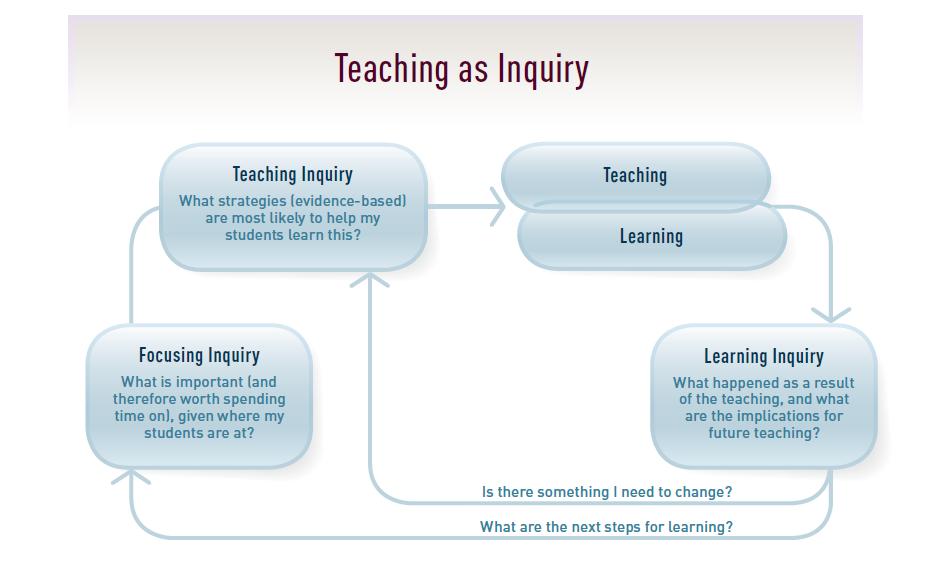"Teaching as inquiry is a cycle of reflecting and adapting practices, based on evidence, to accelerate learning."
Today as part of our school PD we investigated Teaching as Inquiry [TAI], what it means, what it looks like and how we can go about it as a school and as individuals.
After discussing what TAI means to us we were asked to come up with an overarching statement to define it. Above is my statement. As a school we decided to run with this statement to guide our ongoing discussions.
First we explored what some of the terms within this mean.
Evidence Evidence comes from a range of places and to engage in TAI we need to utilise a variety of pieces of evidence to adapt our practice.
- Research
- Observations
- Children's voice
- Teacher's voice
- Modelling
- Assessments
- Whānau
Adapting To adapt we have to change something, enhance it, develop, build on, and evolve. To adapt we cannot stay stagnant and we must be open to new ideas and suggestions.
Cycle This point is the most important. Change does not just happen, and all of a sudden the learning is better. It's an ongoing cyclic process of teaching, learning, adaption, reflection and monitoring.
Reflecting Right from the beginning, throughout and at the end of a cycle of inquiry we need to reflect. What is the area of weakness, gap or problem in the learning environment? What strategies am I currently using, and what strategies might I use in the future? What might be the implications of different strategies and continually and frequently monitoring them.
There was also a discussion around the final part of the above statement "to accelerate learning". Whose learning? Some wanted it to say "to accelerate student learning". However student learning implies that a) children study, and b) children are the only one's learning in this situation. However to accelerate children's learning, we too as teachers must learn. This term we will be implementing 2 - 3 week cycles of inquiry in our teaching. My first inquiry is in developing children's voice in discussion during mathematics rich tasks.
What Teaching as Inquiry have you participated in regularly?
This blogpost relates to Registered Teaching Criteria 8. demonstrate in practice their knowledge and understanding of how ākonga learn & 12. use critical inquiry and problem-solving effectively in their professional practice

